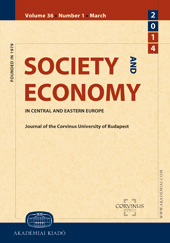Happiness and economics: A Buddhist perspective
Happiness and economics: A Buddhist perspective
Author(s): Colin AshSubject(s): Economy, Theology and Religion, Business Ethics
Published by: Akadémiai Kiadó
Keywords: income; happiness; Buddhism;
Summary/Abstract: Economics and particularly economic policy often seems to focus almost exclusively on the growth of income and creation of wealth. Consumer spending, the provision of public services, investment by private and public sectors, and international trade undoubtedly contribute to well-being. However economists have always viewed Gross National Product (GNP) as an imperfect measure of human welfare. One’s personal values and philosophy of life also matter, as do strategies and techniques for mood control and raising each individual’s baseline or set-point level of happiness.This paper briefly summarises the research findings which have led to this gradual and ongoing shift of focus. Then we take a Buddhist perspective on happiness and economics. Many of the recent research findings are consistent with Buddhist analysis, particularly its analysis of the conditioning process leading to unhappiness. Furthermore, Buddhist practices provide skilful means for the mind to control the mood. The paper ends, however, on a cautionary note: in what sense, if any, is the “greatest happiness” the Buddhist goal?
Journal: Society and Economy. In Central and Eastern Europe ǀ Journal of the Corvinus University of Budapest
- Issue Year: 29/2007
- Issue No: 2
- Page Range: 201-222
- Page Count: 22
- Language: English

